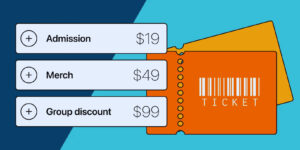Introduction:
Your car is one of your most significant investments. Whether you’re planning to upgrade to a new model or simply want to get the best possible return when selling your current vehicle, maximizing your car’s resale value is key. The good news is, with a few proactive steps, you can significantly boost the price you’re able to command in the used car market.
In this guide, we’ll explore practical tips on how to increase your car’s resale value, from regular maintenance to smart presentation techniques. These strategies are designed to ensure you get the most out of your vehicle when it’s time to sell.
1. Keep Up with Regular Maintenance
One of the most important things you can do to preserve your car’s resale value is to keep it well-maintained. Regular servicing shows buyers that the vehicle has been taken care of, which is a huge plus. Here are key maintenance practices:
- Adhere to the manufacturer’s service schedule: Routine oil changes, brake checks, and filter replacements will help your car run smoothly and prevent major issues down the line.
- Keep all service records: Make sure you have documentation of all work done on the car. A well-maintained car with a complete service history is far more attractive to buyers, as it gives them peace of mind that the vehicle has been cared for properly.
- Address minor repairs promptly: Even small issues, like a broken headlight or worn tires, can lower your car’s resale value. Repairing them as soon as possible will keep the car in optimal condition.
- Keep the engine clean: A clean engine not only enhances performance but also leaves a positive impression on potential buyers. A quick engine clean before you show the car can make a difference.
2. Maintain a Clean Interior and Exterior
The overall appearance of your car is crucial to its resale value. A car that looks well-maintained is likely to fetch a better price than one that appears neglected.
- Keep the interior clean: Regularly vacuum the seats, mats, and carpets, and wipe down all surfaces. If you have leather seats, condition them to prevent cracking and wear.
- Avoid smoking in the car: Smoke can leave a lingering odor and cause stains that are difficult to remove. Non-smokers are especially sensitive to this, and it can drastically reduce your resale value.
- Protect the exterior: Regular washing and waxing can help preserve the paint and prevent rust or corrosion. Try to wash your car at least once a month and apply a coat of wax every three to six months to keep the paint looking shiny and new.
- Fix dents and scratches: Any visible damage to the exterior can significantly lower the car’s resale value. Get any dents, scratches, or chips repaired, no matter how small they seem. If necessary, consider getting a professional detailing job to restore the vehicle’s finish.
3. Keep Your Mileage Low
Mileage is one of the primary factors that influence a car’s resale value. The higher the mileage, the lower the price you can expect. While you can’t completely control how much you drive, there are ways to keep your mileage lower:
- Combine errands: Instead of making multiple short trips, try to combine errands to cut down on unnecessary mileage.
- Carpool or use public transportation: If possible, consider carpooling or using public transportation to reduce how often you use your car. This is especially useful if you have a long commute to work.
- Limit long road trips: If you enjoy taking long drives, consider renting a car for road trips. This can help keep your car’s mileage down while still allowing you to travel.
4. Upgrade Features Wisely
Certain upgrades can add value to your car, but it’s important to choose the right ones. Before making any modifications, think about what buyers might find attractive.
- Technology upgrades: Adding or upgrading a navigation system, Bluetooth connectivity, or a high-quality sound system can make your car more appealing to buyers.
- Safety features: Buyers prioritize safety, so installing modern safety features like a backup camera, parking sensors, or lane departure warning systems can enhance your car’s value.
- Avoid excessive modifications: While custom rims, loud exhausts, or racing stripes may appeal to you, they may not attract the average buyer. In fact, extreme modifications can often reduce your car’s resale value. Stick with upgrades that will appeal to the majority of buyers.
5. Pay Attention to the Tires
Your car’s tires are a crucial part of its performance and safety. Worn-out tires can give the impression that the car hasn’t been well-maintained. Here’s how to ensure your tires don’t affect your resale value:
- Rotate the tires regularly: Rotating your tires every 5,000 to 7,500 miles helps ensure even wear and extends the life of your tires.
- Replace old or worn-out tires: If your tires are near the end of their life, consider replacing them before selling the car. A new set of tires can increase your vehicle’s value and make it more attractive to buyers.
- Check alignment and balance: Misaligned or imbalanced tires can affect performance and cause uneven wear. Make sure these issues are addressed before putting your car on the market.
6. Keep Original Parts and Accessories
Buyers generally prefer cars with original parts and accessories. If you’ve made any changes to the car, like upgrading the stereo or adding custom rims, consider keeping the original parts so you can offer them to the buyer as well.
- Save the factory stereo system: If you’ve upgraded your car’s audio system, keep the original stereo on hand. Many buyers prefer the factory setup for a more cohesive, stock appearance.
- Retain original rims: Custom rims may look good to some, but they aren’t always everyone’s cup of tea. Keep the original rims to give buyers more flexibility in their choice.
- Keep the manual and spare key: Don’t forget about the owner’s manual and spare key. Having both of these can enhance your car’s appeal and demonstrate that you’ve taken care of it.
7. Price Your Car Competitively
When it’s time to sell, pricing your car right is critical. Setting the price too high can turn off potential buyers, while pricing it too low can mean leaving money on the table. Here’s how to price your car appropriately:
- Research market values: Use online resources like Kelley Blue Book, Edmunds, or NADA Guides to find out the current market value of your car. Look at similar models with comparable mileage and conditions to determine a fair price.
- Factor in your car’s condition: If your car is in excellent condition with low mileage and recent upgrades, you may be able to ask for a higher price. Conversely, if the car needs some work or has cosmetic issues, be prepared to price it lower.
- Be willing to negotiate: Most buyers expect some flexibility in price, so set your initial price slightly above your bottom line. This gives you room to negotiate while still getting the amount you want.
8. Market Your Car Effectively
Once your car is ready for sale, you’ll need to market it effectively to reach the right buyers.
- Take high-quality photos: Good photos can make a huge difference in attracting buyers. Make sure your car is clean, and take photos from multiple angles, including the interior, exterior, and engine bay.
- Write a detailed description: Be honest and thorough in your description. Mention any recent repairs or upgrades, and highlight features like low mileage, a clean title, or advanced safety features.
- List on reputable websites: Use platforms like Autotrader, Craigslist, or Facebook Marketplace to reach a wide audience. The more exposure your car gets, the better chance you have of selling it at a higher price.
9. Consider Timing
The timing of your sale can affect how much you get for your car. Certain times of the year are better for selling specific types of vehicles. For example:
- Convertibles sell better in spring and summer: If you have a convertible, you’ll likely get a higher price in warmer months when buyers are looking forward to open-air driving.
- All-wheel drive (AWD) vehicles are more in demand in winter: SUVs and AWD cars are often sought after in colder months when buyers are preparing for snowy conditions.
- End of the year can be a good time for bargains: Many buyers are looking for deals at the end of the year as dealers clear out inventory for new models.
Conclusion
Boosting your car’s resale value isn’t rocket science—it’s about consistent care, smart upgrades, and effective marketing. By following the steps outlined in this guide, you’ll be able to present a vehicle that not only looks great but also offers reliability and value to potential buyers.
This combination will help you secure a better price when it’s time to part ways with your car. Happy selling!








